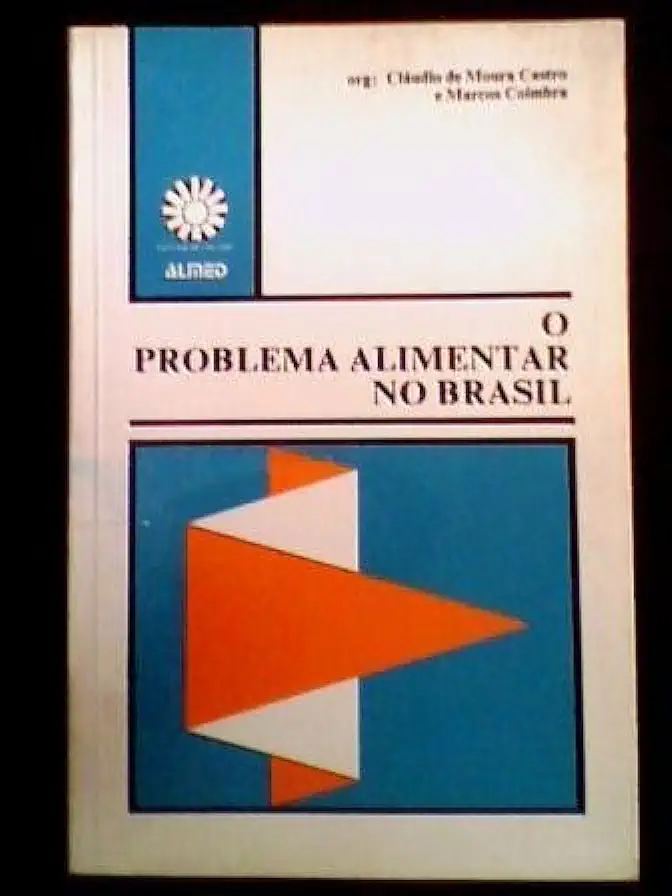
The Food Problem in Brazil - Cláudio de Moura Castro and Marcos Coimbra
The Food Problem in Brazil: A Comprehensive Analysis
Introduction
In their groundbreaking book, "The Food Problem in Brazil," renowned scholars Cláudio de Moura Castro and Marcos Coimbra delve into the complex challenges facing Brazil's food system. With meticulous research and compelling arguments, they present a comprehensive analysis of the issues that hinder Brazil from achieving food security and sustainability. This book is a must-read for anyone interested in understanding the intricacies of Brazil's food system and finding solutions to its pressing problems.
Key Issues in Brazil's Food System
Castro and Coimbra identify several key issues that contribute to the food problem in Brazil. These include:
Land concentration: A small number of large landowners control a significant portion of Brazil's arable land, while many small-scale farmers struggle to access land. This inequality hinders agricultural productivity and contributes to poverty and food insecurity.
Inefficient agricultural practices: Many Brazilian farmers rely on outdated and inefficient agricultural practices, leading to low productivity and environmental degradation. The overuse of pesticides and fertilizers, for example, has resulted in soil erosion, water pollution, and biodiversity loss.
Lack of infrastructure: Brazil's transportation and storage infrastructure is inadequate, making it difficult for farmers to get their products to market. This leads to food spoilage and price fluctuations, which can hurt both farmers and consumers.
Government policies: Some government policies, such as subsidies for large-scale agriculture, have exacerbated the food problem in Brazil. These policies have encouraged the expansion of monocultures, such as soybeans, at the expense of diverse and sustainable farming practices.
The Impact of the Food Problem
The food problem in Brazil has far-reaching consequences for the country's population, economy, and environment. It contributes to:
Food insecurity: Millions of Brazilians suffer from food insecurity, meaning they do not have reliable access to enough food to meet their basic needs. This is particularly prevalent in rural areas and among marginalized communities.
Poverty: The food problem contributes to poverty in Brazil, as many small-scale farmers struggle to make a living from agriculture. This can lead to a cycle of poverty, as families are unable to invest in education and other resources that could help them improve their lives.
Environmental degradation: Inefficient agricultural practices and land concentration have led to environmental degradation, including deforestation, soil erosion, and water pollution. This has negative consequences for human health and the sustainability of Brazil's food system.
Solutions to the Food Problem
Castro and Coimbra propose several solutions to address the food problem in Brazil. These include:
Land reform: Redistributing land to small-scale farmers would increase agricultural productivity and reduce poverty. This could be achieved through government policies that promote land redistribution and support small-scale farmers.
Sustainable agriculture: Encouraging farmers to adopt sustainable agricultural practices, such as agroecology, can help reduce environmental degradation and improve food security. This can be achieved through government incentives, education, and technical assistance.
Improved infrastructure: Investing in transportation and storage infrastructure would reduce food spoilage and price fluctuations, benefiting both farmers and consumers. This could be achieved through public-private partnerships and government funding.
Reforming government policies: Reforming government policies that support large-scale agriculture and monocultures could create a more level playing field for small-scale farmers and encourage sustainable farming practices. This could be achieved through policy changes, advocacy, and public awareness campaigns.
Conclusion
"The Food Problem in Brazil" is a comprehensive and thought-provoking analysis of the challenges facing Brazil's food system. Castro and Coimbra provide a wealth of evidence and insights, making this book an essential resource for anyone interested in understanding the complexities of Brazil's food system and finding solutions to its pressing problems. By addressing the issues identified in this book, Brazil can move towards a more sustainable and equitable food system that ensures food security for all its citizens.